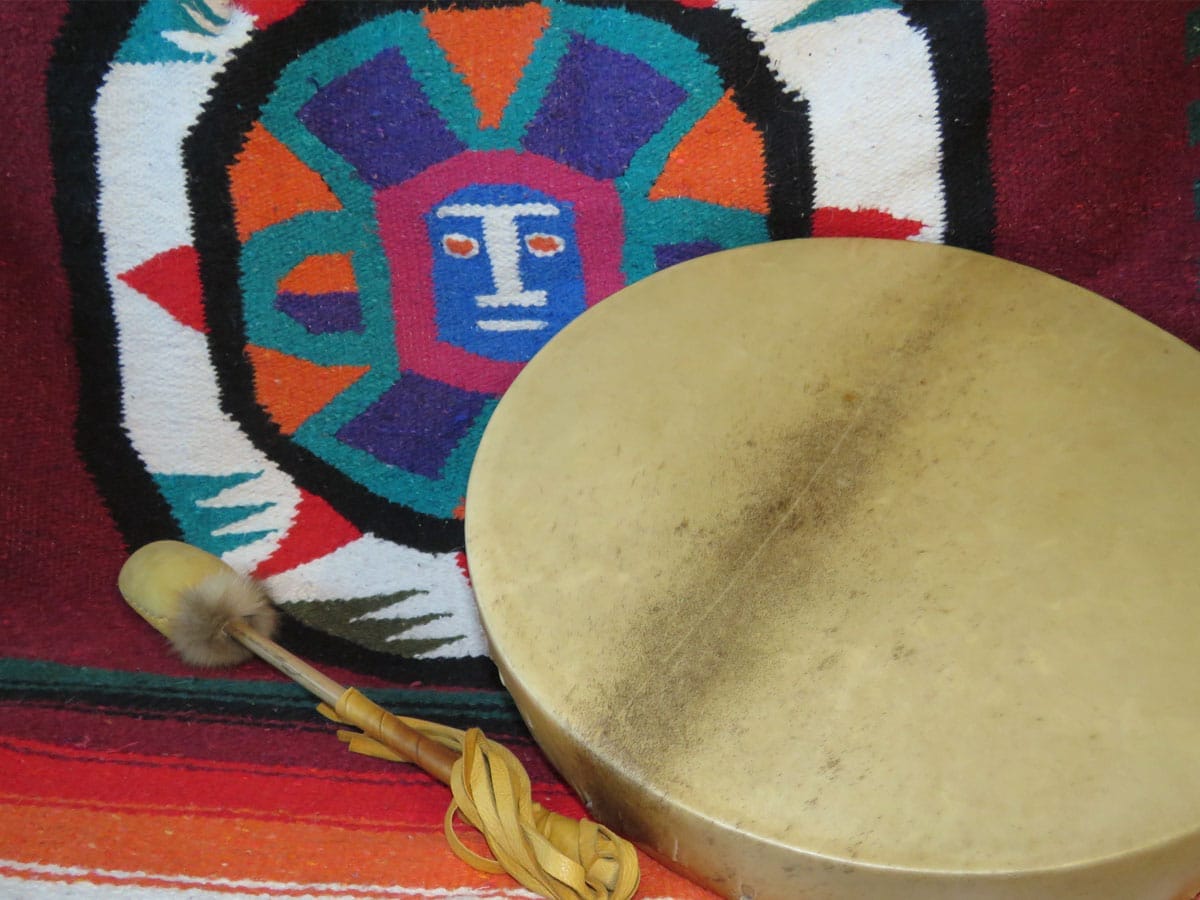Is Shamanism a Religion?
Is Shamanism a Religion?
Shamanism is experiencing a great resurgence. As everyone figures out how to pronounce shaman and shamanism (the first “a” is soft, like an “ah”), there are alternative terms adding to the confusion. “Shamanistic” and “shamanist” being primary contributors.
Given that people are still getting accustomed to the words, it is no surprise that few know how to categorize shamanism. The question of “is shamanism a religion?” is a worthy inquiry.
Religion is typically seen as an organization of people that follow the teachings of a set spiritual tradition. Shamanism looks a lot like a religion because it is about spirituality. There are also strong shamanic traditions. But, is there enough organization to make it a religion?
Shamanism is involved with worship of the Divine, but the practices vary widely. It doesn’t have a written moral code like we see in religion, but shamanism does have a set of common beliefs. We’re used to seeing a head of a religion – the Pope being a primary example – so who is the leader of the shamans? There are local but not global figures.
Religion is defined in the dictionary in these three ways:
- “The the belief in and worship of a superhuman controlling power, esp. a personal God or gods
- A particular system of faith and worship
- A pursuit or interest to which someone ascribes supreme importance”
Absence of a Shared Shaman God
Shamans do believe in a higher power or powers that orchestrate life on this planet and the movement of the heavens. So, strictly speaking, shamanism fits the definition of “the belief in and worship of a superhuman controlling power.”
However, there is no unifying story about the nature of this power that ties all shamans together. Without the glue of a specific mythology, shamanic practitioners around the world don’t unite in a cohesive way like other religions.
There is worship of superhuman powers, but no agreement about what or who that power is. Consensus is missing. Whether or not consensus needs to be present to make shamanism a religion is up for debate.
Shamanism is different than traditional religions because there is no set God or pantheon of deities that every shaman believes in. Some shamans work with a single God, like in Christianity. Others relate to a collection of goddesses and gods, like in Hinduism and Paganism.
Western shamanic practitioners that have lost trust in Christianity leave the definitive God or gods altogether and simply speak of life force or “the universe”.
In addition, there is no collection of written works to refer to in shamanism. Shamans don’t have a Bible, Bhagavad Gita, Tao Te Ching, Quran, Tibetan Book of the Dead, Upanishads, Dhammapada, or Vedas to refer to.
This is a reflection of the locality of shamanism and how much it varies from place to place. As an earth-based practice, it adapts to the environment and people where it takes root. A shaman may adopt teachings from a spiritual text and incorporate those into their shamanic practice. This is a personal choice, not a collective one.
Shamanism Beliefs
Shamanism is a worldwide collection of people that have certain shared beliefs and world views. Here are the basics that unite shamans around the world going back as far as we know:
- There is a physical reality AND a spiritual reality. Both exist at the same time.
- The cosmos is made up of three worlds (lower, middle and upper) and connected by a central axis (such as a mountain or tree)
- Spirit guides in human, animal, and other forms are real
- We have the ability to travel to the spiritual realms via an altered state of consciousness known as the journey trance
- Everything has a soul or is at least imbued with spiritual energy
- All of life is interconnected and sacred
- There is a higher power or powers that help coordinate the movement of the cosmos
- There are cosmic laws that govern illness, healing, life, and death
As you can see, shared shamanic beliefs are about the big picture.
Variation in Shamanic Beliefs
The smaller, specific details vary widely. Shamanism is found on every continent around the world, and variations in the details depend on the country, culture, and individual. For example, some cultures believe that the three worlds have multiple worlds within them while others adhere to a simpler three world model.
There are many ways different shamanic cultures travel to the spirit world. Celtic shamans travel through a mist while Greek shamans use caves. Himalayan and Peruvian shamans travel via mountains and Norse shamans use rivers and oceans.
So when considering a “particular system of faith and worship” it is a matter of degree with shamanism.
There is immense variation in shamanic practice. Because of this, we could easily make the case that shamanism doesn’t fit into the basket of “religion”. There is just not enough agreement on the details of both belief and ritual that bind the world-wide shamanic community together tightly enough.
There is no PARTICULAR system. In this way, it seems that shamanism fails to meet the definition of a religion.
Shamanism Religion for Lay People?
Traditionally, people who practiced shamanism held an esteemed and unique role in their communities as the tribe healer. The members of the community practiced a religion such as Buddhism, Hinduism, or Paganism. They went to their shaman for guidance and healing.
I’d argue that more people today than ever before are accessing the wisdom and healing of shamanism directly via their own journey trances. This makes shamanism less of an elitist practice than it used to be. It’s now a spirituality available to anyone.
There is a collective identity in practicing shamanism. Many believe, including me, that laypeople can practice shamanism without needing to have a career as a shamanic practitioner. This opens the door to the possibility of shamanism as a religion because it has a wider application and following.
However, without centralized leadership and gathering places, shamanism still looks different than we expect religion to be. The leaders and communities are more localized than other organized world religions.
Pursuit of Supreme Importance
Then there is the last definition of religion: “a pursuit or interest to which someone ascribes supreme importance“. Shamanism most definitely carries that supreme importance for me. When I ask myself “Is shamanism a religion?” in this light, I can easily say it is for me.
I appreciate participating in a spiritual practice that doesn’t require I believe a set way. The freedom to mix and incorporate different spiritual and religious stories and teachings is what draws me to shamanism.
Shamanism provides a container, a conduit, for our relationship with the Divine. Rather than tell us about the nature of a higher power, shamanism allows us to experience The One directly. Rather than require I read a book or speak to a priest to learn about the Divine, I can engage in direct revelation. For me, this is of supreme importance.
Re-Evaluating Religion Itself
You can make the case for a shamanism religion or not.
You have the opportunity to choose.
As we re-evaluate our relationship to “religion” and what that word means, we can decide for ourselves if we want to fit shamanism into that mold or not.
For people who have been betrayed, disappointed, or wounded by organized religion, shamanism offers an alternative spiritual path. For them, embracing shamanism as a spiritual practice and leaving the term “religion” altogether brings safety and freedom.
For others, calling shamanism a religion and reclaiming the word “religion” in a revolutionary way is what is healing. Whether or not we call it a religion, I can say for certain that shamanism is a worldview, a healing modality, and a spiritual practice.
Is shamanism a religion? I’d love to hear what you think! Post your thoughts in the comments below!
Want to Explore the
World of Shamanism?
Register for a Shamanic Workshop
with Stacey Couch












Brilliant and cohesive, Stacey. Extremely helpful and shareable! Thanks much.
You’re so welcome!
Thank you for this comprehensive and easy to understand explanation. This will certainly help me in my practice.
Your post of the hawk explained lots to me. Thanks and I’m a love warrior is what I refer to this state of spirit. Much love to you and yours <3
Thank you and same to you!
Per the definition you gave, a “god” is not required in order to be a “religion”.
Here is what you wrote:
“Religion is defined in the dictionary in these three ways:
1. The the belief in and worship of a superhuman controlling power, esp. a personal God or gods
2. A particular system of faith and worship
3. A pursuit or interest to which someone ascribes supreme importance” ”
For #1, the worship is of a “superhuman controlling power”, with only an example being “personal God or gods”. Again, the salient point is the “superhuman controlling power”, which need not be a “god”. Rather, anything that is “superhuman”. And that includes a lot. In Shamanism there is a belief, reverence, respect, etc. for something superhuman, something above human.
Number 2 and number 3 apply directly to Shamanism.
Personally, I am not a religious person, and am not part not partake of any religion. I comment because, if we/society accept a superhuman like Jesus, and Christianity as being a religion, then any other belief and faith should have equal legal standing. As for whether or not a Jewish person, Muslim, or Christian, etc, accept other different beliefs and faith as “true religions”, that is a personal decision. In a secular world and government, you can have personal beliefs, faith, and religion, and the US government will respect your choice. That is why Shamanism also gets legal recognition.